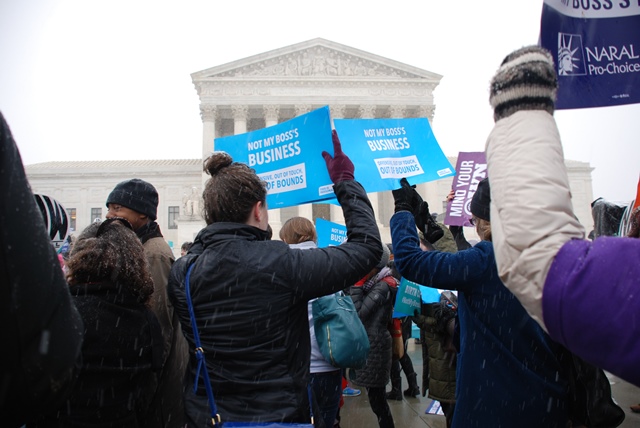A Hopeful Sign for LGBTQ Workplace Equality

 Yesterday, one of the most important federal courts in the country signaled that it may be ready to recognize federal civil rights protections for LGBTQ individuals in the workplace. And it couldn’t come at a more critical time, when LGBTQ people have come under attack from the Trump Administration and state governments in so many ways.
Yesterday, one of the most important federal courts in the country signaled that it may be ready to recognize federal civil rights protections for LGBTQ individuals in the workplace. And it couldn’t come at a more critical time, when LGBTQ people have come under attack from the Trump Administration and state governments in so many ways.
The Second Circuit Court of Appeals, which covers New York, Connecticut, and Vermont, just agreed to reconsider its decision in Zarda v. Altitude Express as a full court. The case involves a sky diver who claimed he was fired after disclosing his sexual orientation to a customer. The a three-judge panel of the court, relying on a Second Circuit decision in a prior case decided many years ago, had found that the prohibition on sex discrimination in Title VII of the Civil Rights Act of 1964 does not protect against discrimination based on sexual orientation. Only the full court can set overrule a previous panel decision, so this grant of reconsideration offers the Second Circuit the opportunity to overturn its precedent holding that Title VII does not prohibit sexual orientation discrimination.
The National Women’s Law Center recently filed an amicus curiae brief in this case, representing 14 civil and women’s rights organizations, supporting the employee and asking the full court to rehear the case. NWLC’s amicus brief detailed how the Supreme Court’s interpretation of Title VII’s prohibition against sex discrimination has evolved over the years to encompass a broader understanding, which includes discrimination based on sexual orientation, given that such discrimination both is based on an employee’s sex and is based on gender stereotypes.
Whether Title VII’s prohibition on sex discrimination extends to discrimination on the basis of sexual orientation is a rapidly evolving legal question. In 2015, the Equal Employment Opportunity Commission concluded that the sex discrimination prohibition reached sexual orientation discrimination, and there have been a flurry of federal appeals court decisions considering the issue just this year.
In March, in Evans. v. Georgia Regional Hospital, a panel of the Eleventh Circuit Court of Appeals ruled that it could not recognize the Title VII sexual orientation discrimination claim of a lesbian hospital security officer, although the court allowed her claims of gender nonconformity discrimination to stand. The plaintiff has asked the full Eleventh Circuit to review this case.
Later that month, in Christiansen v. Omnicom Group, the Second Circuit rejected an ad executive’s claims that he was sexually harassed by his supervisor due to his sexual orientation, although the court allowed his claim that he was subject to sex stereotyping due to his failure to conform to gender norms to proceed. However, two of the three judges wrote a separate concurring opinion indicating that they believed sexual orientation discrimination is necessarily sex discrimination within the meaning of Title VII, and urged the full Second Circuit to reconsider its precedent holding otherwise. (NWLC filed an amicus brief requesting rehearing of Christiansen as well).
Days later in April, the Seventh Circuit became the first federal appeals court in the country to recognize that sexual orientation discrimination is a form of sex discrimination prohibited by Title VII, in Hively v. Ivy Tech Cmty. College.
The Second Circuit will rehear Zarda in September. NWLC will be filing another amicus brief, urging the Second Circuit to join the Seventh Circuit and finally get it right. LGBTQ people can’t afford to wait any longer for their civil rights.



